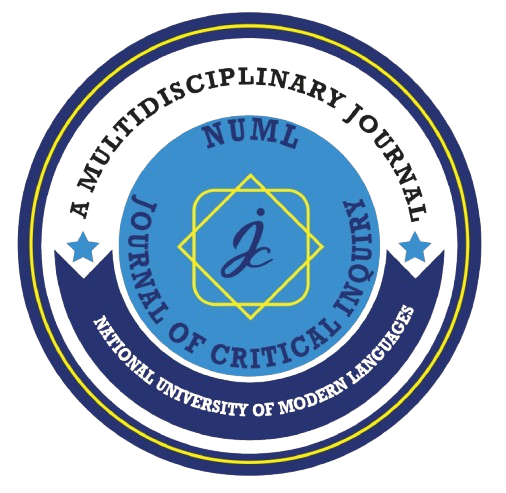Indigeneity and Resistance in Zubair Ahmad’s Grieving for Pigeons
Main Article Content
Abstract
This article explores how short stories in Zubair Ahmad’s collection Grieving for Pigeons (2022) manipulate the narrative of cultural memory to project the intricate realities of the postcolonial Pakistani Punjab. These stories set in Lahore foreground the rich memories of pure culture and the partition of Punjab, contribute to the empowerment of Punjabi language, and depiction of cultural and historical heritage of Lahore. Moreover, significantly, these short stories also showcase a postcolonial resistance. Drawing upon concepts of Mieke Bal on cultural memory and Aleida Assman’s “remembering forward”, this research highlights how Ahmad’s stories (2023) succeed in excavating the transformation and reformation of cultures by reinterpreting understanding of the past and, thus, put forward a “remembering forward”. These stories, originally written in Punjabi and translated into English by Anne Murphy, situate culture of the past in the future to come, by influencing people to embrace their culture, enabling it to adapt to new circumstances and achieve an elevated position where it becomes resistant against colonial exercise. I argue that cultural memory, impacting the identities of individuals, grows to a point of resistance which I term as postcolonial resistive memory. This postcolonial resistive memory produces the Affect to emphasize the authenticity of the shared past and ideological resistance in the masses. This memory also has the potential to maintain indigeneity, reinscribe the cultural past, and revolutionize futuristic ideals.
Conflict of interest:
The author has declared no potential conflicts of interest with respect to the research, authorship, and/or publication of this article.






